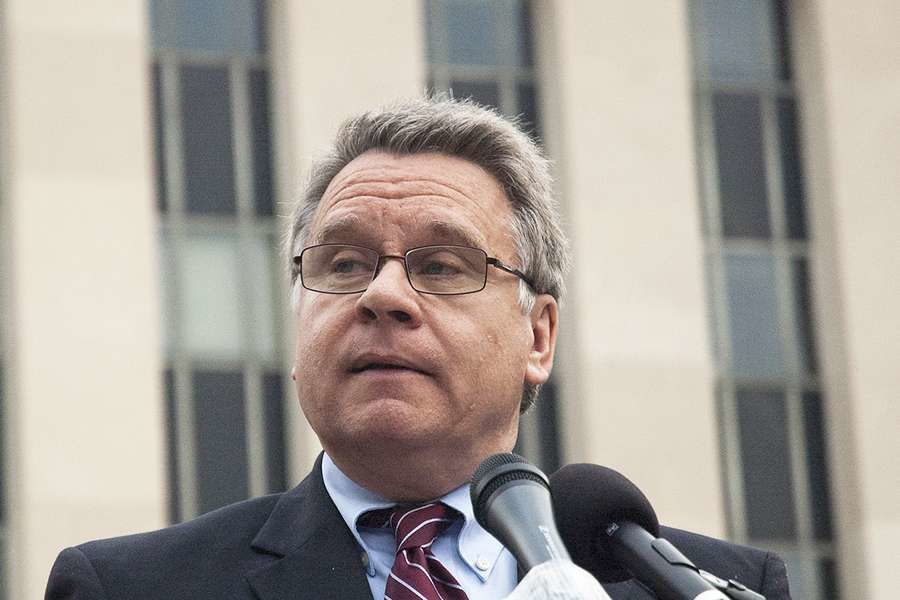Pro-life health care workers and institutions need stronger legal protections from pressure to help provide abortions, backers of proposed federal legislation have said.
“Healthcare is about saving life, eradicating disease, mitigating disability —not taking life,” U.S. Rep. Chris Smith (R-N.J.) said Nov. 8. “At the very least, health care providers should have the right to not be coerced into facilitating abortion. Coercive anti-conscience policies are not only highly unethical but blatantly illegal. The law couldn’t be clearer on this matter.”
He spoke at a D.C. press conference in support of the Conscience Protection Act, which would protect health care workers from federal, state, and local abortion mandates if they conscientiously object to assisting with abortions. It would also protect religious employers from having to cover elective abortions in their health plans, and establishes a “right of action” in court for all entities if they believe their religious beliefs on the matter are violated.
Backers of the bill say that health care professionals with objections to abortion are not sufficiently protected in the workplace. Medical professionals who believe their conscience rights have been violated must file a grievance with the civil rights office at the Department of Health and Human Services. Some complaints reportedly sit undecided for months or years.
The press conference hosted three nurses who said their employers pressured them to participate in abortio
One nurse, Fe Vinoya, was among 12 nurses whose jobs were threatened at the Same Day Surgery Unit in University Hospital in Newark, N.J. because they did not participate in abortions.
“After years of working as a critical care and emergency room nurse, I never imagined that the hospital I worked for would force me to choose between taking the life of an unborn child and losing my job,” she said, adding “I became a nurse to help people, not to do harm.”
Another nurse at the press conference, Cathy DeCarlo, sought redress after she was pressured to perform an abortion at Mt. Sinai Hospital in New York. She said she thought she was preparing for a common procedure performed after a miscarriage when she realized she was being asked to perform an abortion on a 22-week-old unborn baby.
“My supervisor insisted that I must do the abortion, and that if I didn’t assist, I would be charged with insubordination and abandoning my patient. My nursing career and ability to care for patients and provide for my family would be over,” said DeCarlo.
“I’ll never forget that day as I watched in horror as the doctor dismembered and removed the baby’s bloody limbs, and then I had to account for all the pieces. I still have nightmares about that day.”
According to Rep. Smith, Decarlo’s legal appeals to protect her conscience rights were rejected by a federal district court and the Department of Health and Human Services’ Office of Human Rights neglected to respond to her.
In 2013, an HHS investigation determined that the hospital had to change its policies to accommodate employees with conscientious objections to abortion.
“These nurses suffered discrimination because they recognize the innate value, dignity and preciousness of the unborn child and refused to be complicit in an act of violence against a vulnerable child,” Rep. Smith charged.
The House of Representatives previously passed the language of the Conscience Protection Act in appropriations bill, but lawmakers hope it will also be included in a spending bill expected to be signed by President Trump at the conclusion of this year.
The legislation was co-authored by U.S. Rep. Diane Black (R-Tenn.) and Sen. Jim Lankford (R-Okla.) Several other legislators, including U.S. Rep. Dan Lipinski (D-Ill.), were at the Nov. 8 press conference, as were nurses who faced problems in the workplace for refusing to cooperate in abortion.
The U.S. Conference of Catholic Bishops is among the backers of the bill.

